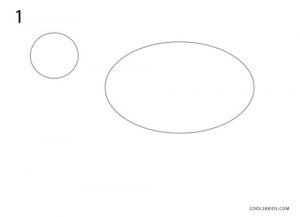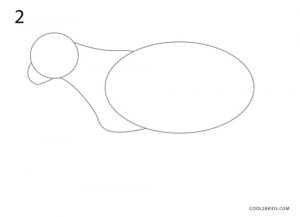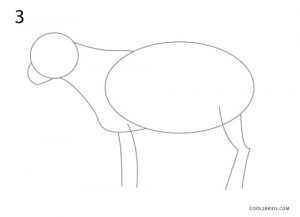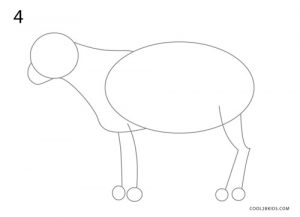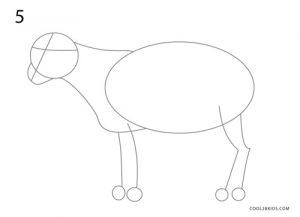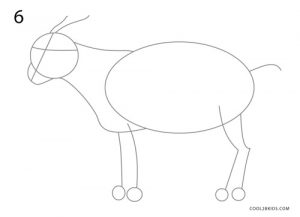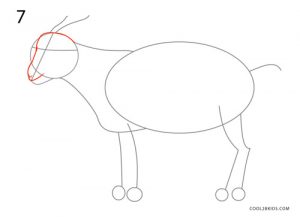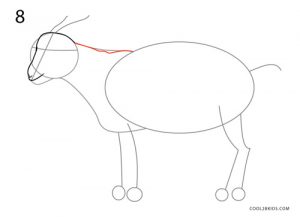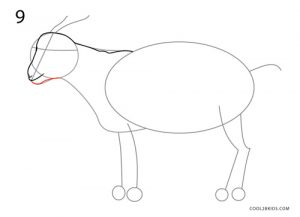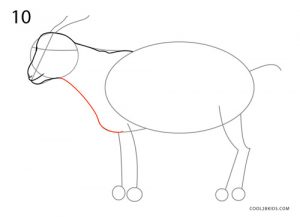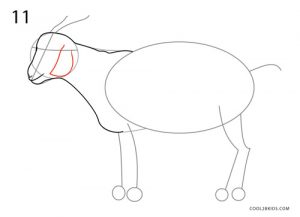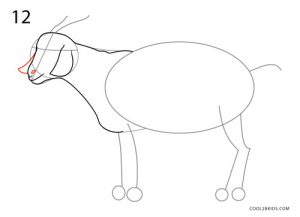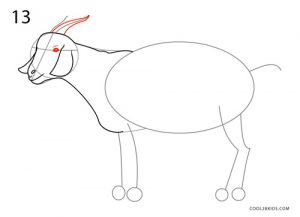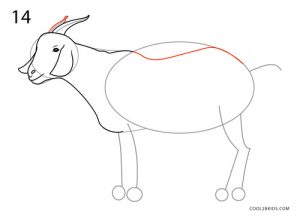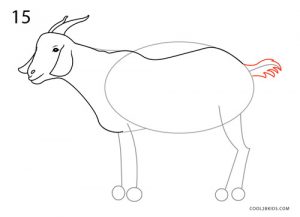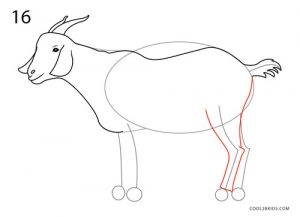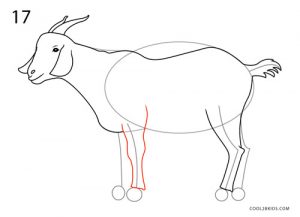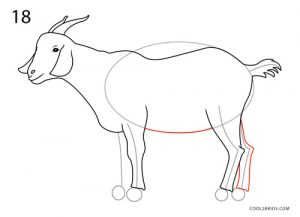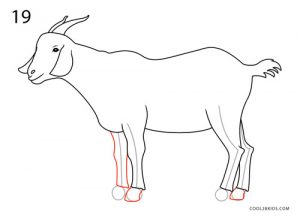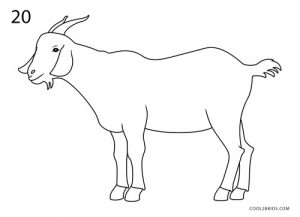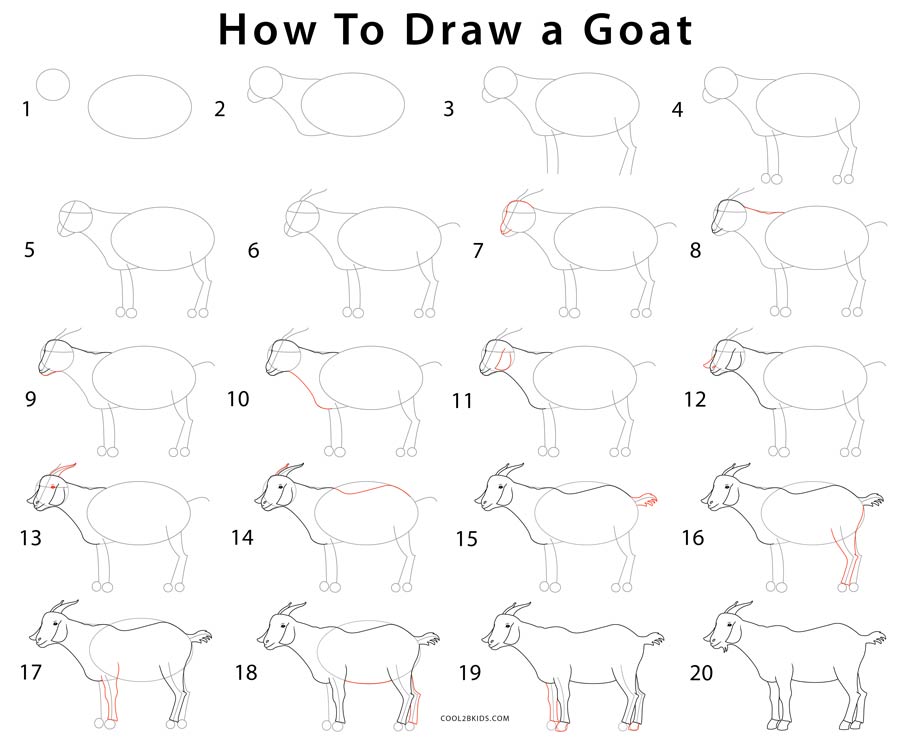The domestic goat is our subject of drawing in this activity. It doesn’t have a very curvy body but a well-built one. Little things such as the horns, hooves, tails, ears and nostrils need to be done meticulously for completing the figure. It is good to know that it is an animal that provides us with meat, milk, clothes, fuel, etc.
Step 1: Draw an oval and a circle that act as guides for the body and the head respectively.
Step 2: Connect the 2 with curved lines. A semicircle-like form is made beside the circle.
Step 3: Create the guides for the legs.
Step 4: Small circles serve as guides for the hooves.
Step 5: Draw intersecting lines on the head part.
Step 6: A couple of nearly straight lines emanating from the head are the guides for the horns and a single one from the back is the guide for the tail.
Step 7: Sketch the forehead and the bridge of the nose.
Step 8: Detail the upper part of the neck.
Step 9: Make the lower jaw.
Step 10: Create the lower part of the neck.
Step 11: The drooping ear resembles a leaf.
Step 12: Draw the other ear and a tiny circle for the nostril.
Step 13: Create a long pointed horn and a tiny round eye below a thin arched eyebrow.
Step 14: The other horn that is partially covered by the previous one and the smoothly dented back are now sketched. The guides drawn in step 5 are erased.
Step 15: The circular and horn guides are erased. The tail that looks like a tuft of feathers is made.
Step 16: The front hind leg is shaped broader near the body and slender at the ends.
Step 17: The front foreleg is a wavy structure with a nearly straight bottom.
Step 18: A part of the other hind leg shows. An arch for the tummy is created.
Step 19: The foreleg at the back, partly guarded by the frontal one is done. The hooves are small square-like structures albeit with opposite curved edges. The oval guide is erased.
Step 20: The other 2 hooves are drawn and the leg guides erased. A fang-like beard is created.
Once complete, you can innovate by giving it small patches on the body. It can be colored brown, black, yellow, etc. Since they are herbivorous animals, you can draw grass in the background. They chew cud and produce milk that is considered to be a healthier alternative to cow’s milk.

